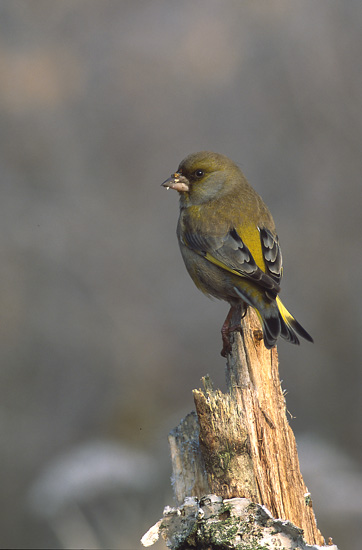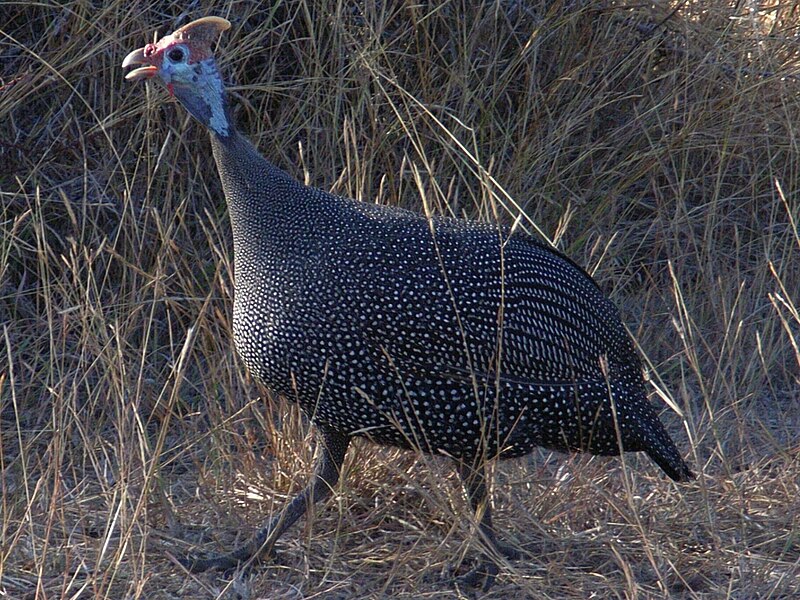
Most parrot owners firmly believe that their pets understand at least some of what they say. My own experience also indicates that this is true – there are just far too many examples of parrots’ utterances fitting the situation to be mere coincidence. Then, of course, there was the famous Alex, an African Grey Parrot whose amazing learning abilities shocked even seasoned animal behaviorists (please see article below). A recent study took an interesting new approach to analyzing parrot speech, and yielded some surprising findings. Read More »
Category Archives: Bird Intelligence
Feed SubscriptionRare All-White Kiwi Hatches at New Zealand Conservation Center
 The Kiwi, New Zealand’s national bird, is the ultimate avian oddball. Kiwis are round in shape, lack visible wings and have spiky, hair-like feathers; unlike other birds, their nostrils are located at the ends of their long, slender bills, and they have a well-developed sense of smell. Apparently, however, such distinguishing features were not enough to suit Manukura, a Kiwi that hatched in May, 2011 at the Pulcaha Nature Reserve…he is all white, as well! Manukura, whose name, means “Of Chiefly Status” in a local indigenous language, is a Northern Brown Kiwi, Apteryx mantelli, one of 5 Kiwi species found on New Zealand. Read More »
The Kiwi, New Zealand’s national bird, is the ultimate avian oddball. Kiwis are round in shape, lack visible wings and have spiky, hair-like feathers; unlike other birds, their nostrils are located at the ends of their long, slender bills, and they have a well-developed sense of smell. Apparently, however, such distinguishing features were not enough to suit Manukura, a Kiwi that hatched in May, 2011 at the Pulcaha Nature Reserve…he is all white, as well! Manukura, whose name, means “Of Chiefly Status” in a local indigenous language, is a Northern Brown Kiwi, Apteryx mantelli, one of 5 Kiwi species found on New Zealand. Read More »
New Study Confirms Birds Have Distinct Personalities
 Have you ever been met by blank stares when trying to convince “non-bird” people that your pet has a unique personality? You might be believed if you’re referring to a parrot, but a canary or other finch…not likely. However, a recent (April, 2011) study has confirmed that Greenfinches, Carduelis chloris, do indeed exhibit widely-varying personalities. My experience, and that of countless other bird-keepers, convinces me that this is true for other species as well.
Have you ever been met by blank stares when trying to convince “non-bird” people that your pet has a unique personality? You might be believed if you’re referring to a parrot, but a canary or other finch…not likely. However, a recent (April, 2011) study has confirmed that Greenfinches, Carduelis chloris, do indeed exhibit widely-varying personalities. My experience, and that of countless other bird-keepers, convinces me that this is true for other species as well.
Behavioral Responses
By measuring stress levels in the blood of Greenfinches, researchers at the University of York (UK) established that differences in behavior were directly correlated to distinct personality types. Read More »
Birds Behaving Badly – Cockatoos, Ibis, Koels and Miners Try Australians’ Patience
 Australians have a long history of tolerance towards their wild neighbors, and the government has always protected most native animals. However, according to recent news reports, an unlikely assortment of birds has now become adapted to urban life, and it seems that only the birds are happy with the situation. Hard as it may be for non-Australians to imagine, it seems that cockatoos, ibis, honeyeaters and other “exotic beauties” are causing quite a bit of trouble in the cities they have adopted as homes.
Australians have a long history of tolerance towards their wild neighbors, and the government has always protected most native animals. However, according to recent news reports, an unlikely assortment of birds has now become adapted to urban life, and it seems that only the birds are happy with the situation. Hard as it may be for non-Australians to imagine, it seems that cockatoos, ibis, honeyeaters and other “exotic beauties” are causing quite a bit of trouble in the cities they have adopted as homes.
The World’s Most Magnificent Pest?
The Sulphur-Crested Cockatoo, Cacatua galerita, is considered to be the ultimate parrot pet by bird fanciers and the ultimate crop pest by many farmers. Strictly protected by law, cockatoo populations on farms usually exceed those in natural habitats. Now, it seems, the magnificent white birds have discovered city life, and are taking to it with zeal. Read More »
The Captive Care and Natural History of the Helmeted Guineafowl
 Helmeted or Gray-Breasted Guineafowl, Numida meleagris, are just about the most active, responsive and interesting birds that one can imagine. I first worked with a free-ranging flock on the grounds of the Bronx Zoo, and became an immediate fan. Related to pheasants and domestic fowl, they are perhaps best known as egg and meat-producers, but if kept as pets they will reveal many other fine qualities. Innate alertness renders them as fine a “watch dog” as one could want, and they are supreme hunters of ticks, weed seeds, mice and other pests.
Helmeted or Gray-Breasted Guineafowl, Numida meleagris, are just about the most active, responsive and interesting birds that one can imagine. I first worked with a free-ranging flock on the grounds of the Bronx Zoo, and became an immediate fan. Related to pheasants and domestic fowl, they are perhaps best known as egg and meat-producers, but if kept as pets they will reveal many other fine qualities. Innate alertness renders them as fine a “watch dog” as one could want, and they are supreme hunters of ticks, weed seeds, mice and other pests.
Natural History
Helmeted Guineafowl are native to West Africa, where they inhabit dry grasslands, brushy savannas and overgrown fields. Flocks hunt in a very organized manner, sometimes walking forward through the grass in a tight line to drive prey before them. Very little, even the young and eggs of ground-nesting birds, is spared. Birds hunting alone will carefully stalk insects in a most amusing, “cat-like” manner, and rarely miss their targets. Read More »
 That Bird Blog – Bird Care and History for Pet Birds
That Bird Blog – Bird Care and History for Pet Birds
